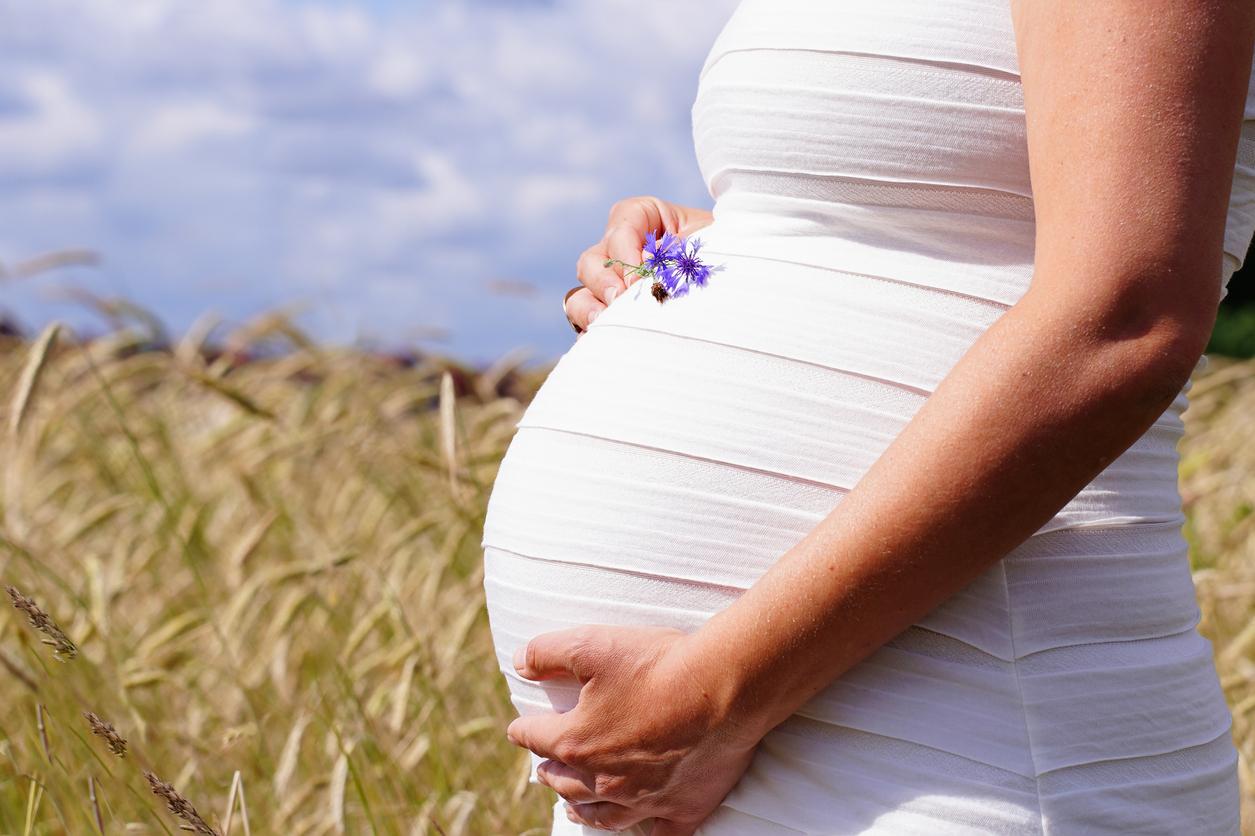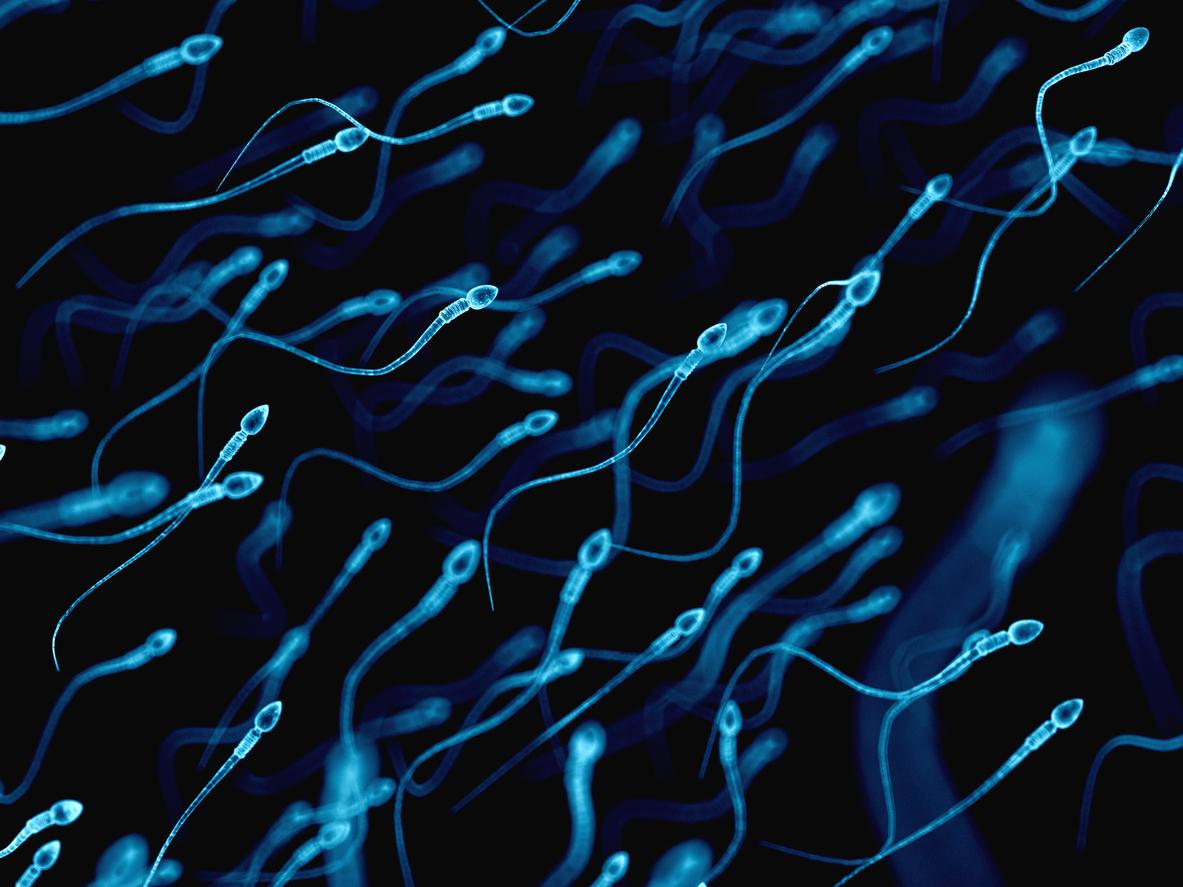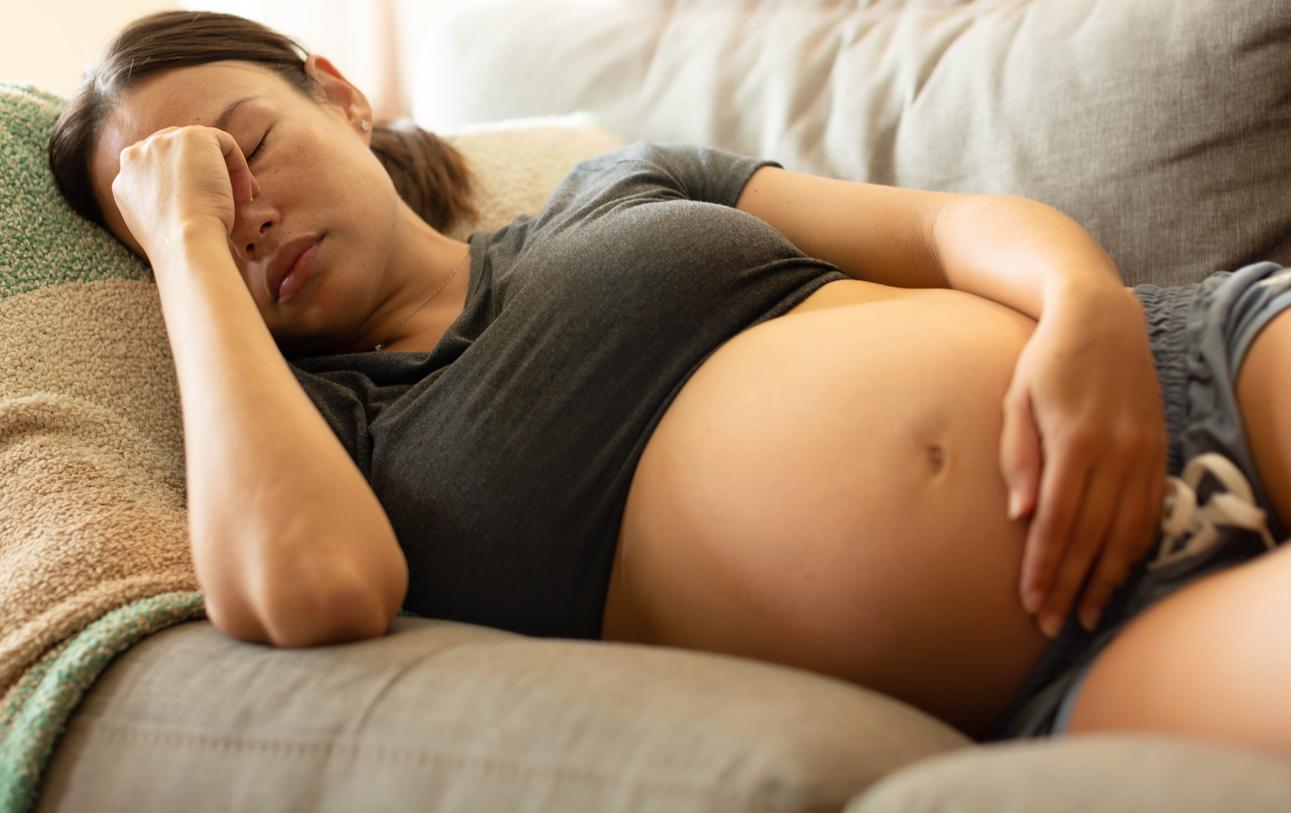REPORTING. In the Norrent-Fontes camp, around 100 women survive in the mud and unsanitary conditions. Among them, pregnant women try to reach England until the end of their pregnancy.

In the Norrent-Fontes camp, winter hangs on. On this Wednesday in March, the thermometer barely displays 4 ° C and hailstorms hit the slum. The icy wind is also part of the game. As he pushes his way between the tents, he sweeps away everything in his path. Carpet in their tent, the migrants prepare hot coffee or milk in pots placed on the embers. They are around 200 living in this camp, 60 km from Calais. Half would be women. Originally from Sudan, Eritrea and Ethiopia, they left everything, paid thousands of euros and braved all dangers to pursue a dream: to settle in England.
But today, these migrants from the Horn of Africa survive in a slum set on an earthy mound reduced to slush. In the middle of the fields and a few kilometers from the A26, also called the Autoroute des Anglais, each night they try to get into trucks clandestinely. “It’s very difficult, especially for my wife,” admits Ifrem, a 32-year-old Eritrean. His wife, Lamlam, is eight and a half months pregnant.
They arrived in Calais 5 months ago with the hope of giving their child a better future. “In the jungle, there were too many people. Fights and violence were daily. Here, it’s calmer, it’s better for us, ”explains Ifrem, rubbing his hands in an attempt to warm them up.
Unsanitary living conditions
In the muddy alleys of the camp, garbage and food mix. In front of the ten or so tents, an innumerable number of pairs of shoes litter the ground. Too bad if they take water. The migrants try as best they can to keep their “house” clean.
Refugees in their apple-green tent, Ifrem and Lamlam wait for the weather to improve. In their shelter, the wind rushes in and freezes the bones. Wrapped up in fleece blankets and vests, the young woman with fine features prepares Eritrean tea. That day, they especially watch for the arrival of Edith Chevalier and Jean-Pierre Dugrain who have come to pick them up to leave the camp for good. These volunteers from the ECNou association volunteered to be a host family. “They come to us to prepare for the birth and the first weeks of the baby,” explains the retired couple.
Ifrem and Lamlam have been there several times to spend weekends away from the slum. “When we are there, we forget the jungle, the mud and the cold,” smile the future parents. On their arrival, the hugs are warm. “Baba, Mama how are you?” Lamlam asks, holding out his arms to them.
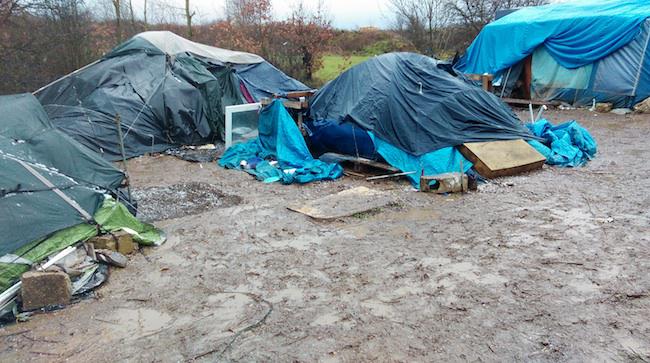
Hail and rain showers turned the dirt trails into fields of mud. Photo credit: Lebrun / Pourquoidocteur / TDR
Caring for women
This “sheltering” was prepared by the associations ECNou and Terre d’Errance as well as the NGO Gynécologie sans frontières (GSF). The latter has been following Lamlam’s pregnancy since her arrival in France. She also makes hospital appointments to prepare for the birth. A situation far from unprecedented in the Calaisis camps. “In Norrent-Fontes, we have 2 pregnancies, that of Lamlam and a twin who is in 5th month. In total on all the camps, we have around 40 files. But the exact figure is unknown because some disappear while others are not followed at all ”, explains Sylvie Deleval, the volunteer midwife. The NGO also ensures the transfer to hospitals on D-Day. For the time being, no woman has given birth in a camp.
One afternoon a week, GSF organizes consultations in a small caravan installed near the women’s dormitory where about twenty of them have gathered. But this time, the midwife and the gynecologist Laurence Pecqueux mainly act as a nurse and general practitioner. “We saw 14 people, including men. They are all there for colds, sinusitis or coughs, ”explains the volunteer doctor. The young refugee pregnant with twins preferred to stay warm in the cabin. Others do not even know that they can benefit from a gynecological follow-up because they do not speak French or English.
To make itself known, the NGO relies on their Jordanian interpreter Hana Alnawashdeh. With her GSF chasuble on her back, she goes to meet them to find out if they need anything. She also questions them about their relationship with the men in the camp. “In Norrent-Fontes, women are very difficult to approach. When asked if they need contraception, they say that men are nice to them and that they don’t need it. However, we feel that they are in danger, ”says the translator. For some, this silence is linked to modesty while others are constrained by fear. In particular, Hana suspects one of the refugees of imposing silence on any attacks to which others could be victims.
Rape, prostitution, sexual harassment are forms of violence common to all camps. Alcohol, also a universal scourge, is one of the triggers. Many are those who do not dare to complain and consult the gynecologists. “They are afraid of being listed and of not being able to be free to cross the border,” explains Sylvie Deleval.
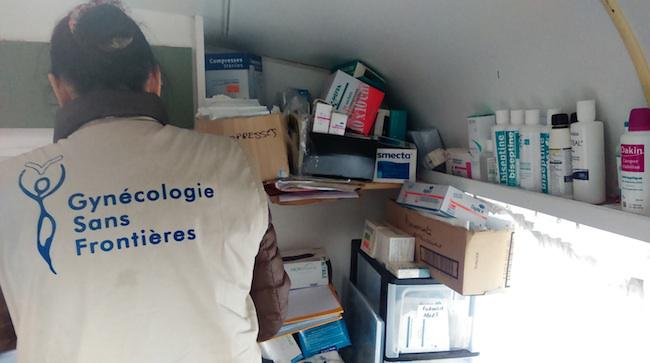
In their small caravan without heating, GSF welcomes and treats the refugees. Photo credit: Lebrun / Pourquoidocteur / TDR
Calais and Grande-Synthe: organized prostitution
They would be more than 400 in Calais, a hundred in Grande-Synthe as well as in Norrent-Fontes. Difficult to know exactly. One thing is certain: they are the primary targets of camp violence.
In Calais and Grande-Synthe, associations report the existence of prostitution networks organized by smugglers. In the Calais Jungle, a brothel would have emerged, maybe several. For isolated women in particular, selling their bodies is a way to survive. It is also a bargaining chip for crossing the Channel.
At Norrent-Fontes, nobody knows if this exists. But despite the absence of smugglers in this camp, it is impossible to say that prostitution and sexual assault do not exist.
On the justice side, no investigation is underway. The police did not make any arrests either. Women still need to file a complaint.
Unflinching determination
It is also for this reason that a large number of these isolated women prefer to stay in summary shelters instead of settling in the reception centers planned to accommodate them. Among them, there is Marie, a Sudanese woman in her twenties who is 5 months pregnant. She left Calais to come to the tiny camp at Chocques.
The young woman shares her cabin made of wood, down and blue plastic tarpaulin with 2 other young girls. None of them speak English but they get by in Arabic. According to Hana, Marie has never been to the hospital or seen a doctor for the follow-up of her pregnancy. The GSF team therefore offered to take an exam. Thanks to a portable ultrasound machine, Dr Laurence Pecqueux makes sure that all is well. When the gynecologist shows her the hand and the head of her baby, Marie’s face lights up. The specialist even tells her that she is expecting a little girl. Happiness can be read in the eyes of the future mother. Anguish too. Marie is alone. Her husband managed to move to England a month ago. Since then, she has tried in vain to join him.
Life in this 20-person camp is very difficult. They have no sanitary facilities and no shower has been installed. Edith and Jean-Pierre then suggest that Marie come to their place the next weekend to rest and take some time for her. The young woman accepts on condition that her friends can accompany her and that they stay only one day. Because staying a warm night in a real bed has a price: missing an opportunity to cross the Channel.
Sylvie Deleval, volunteer midwife at Gynécologie Sans Frontières: ” The people who are here want to go to England at all costs. But some tell us that they are tired and that they will seek asylum in France. A decision taken as a last resort. “
A dilemma facing Ifrem and Lamlam. They decided to stay in the Norrent-Fontes camp for a few more days despite the imminent arrival of their baby. “We still have to try this week,” insists the future father. If the couple fails, they will move in with “mama” and “baba” to wait for the birth and the baby’s first weeks. “We are of course disappointed but we understand them. It is their choice, their life. We will be there when they need us, ”explain Edith and Jean-Pierre. But this step in their family at heart will not last long. Because if England resists them, Ifrem and Lamlam have already decided to see their child grow up in Switzerland or the Netherlands.
Why England?
Afghans, Iraqis, Syrians, Ethiopians, Sudanese… The thousands of migrants who flock to Europe want to cross the Channel. A determination that seems irrational as the chances of passing are slim.
Still, hope persists because some are getting there. In Norrent-Fontes, they are 5, 20 sometimes 50 to succeed each week. “Some try to go because they have family there and they know they will have shelter. Others speak English and think they will find work easily, ”explains Marie-Claire, retired nurse and member of Terre d’Errance who visits the camp almost every day. “Refugees see the UK as an El Dorado. Their desire for England is based on stories and myths they have heard in Africa, ”adds Jean-Pierre Dugrain. This destination has meaning for them. Much more than staying in France and asking for asylum.
But they would never have imagined such living conditions. “In my country, I had a job, a house and a car. If I had known that I would live in a tent and that I would wade through the mud, I would never have left my family ”, regrets Ifrem. The young Eritrean understands above all that Europe, and in particular France, does not want to “create a call for air”, at the risk of seeing thousands of additional migrants arrive.
However, for this man with the soft voice, impossible to turn around. The pride is too strong. One day his parents called him after seeing pictures of Calais. Frightened, they begged their son to come home. So to protect them and not to disappoint them, Ifrem assured them that he and his wife did not live in this slum. “Now that I’m here, I have no choice, I have to go to England,” he explains, looking at Lamlam. His wife also has this dream stuck to her body. A few days before her childbirth, she insists with her husband to try one last time.
These pregnant refugees trying to reach England: Our report in the Norrent-Fontes camps and …
Posted by Why doctor on Wednesday, March 9, 2016
.













